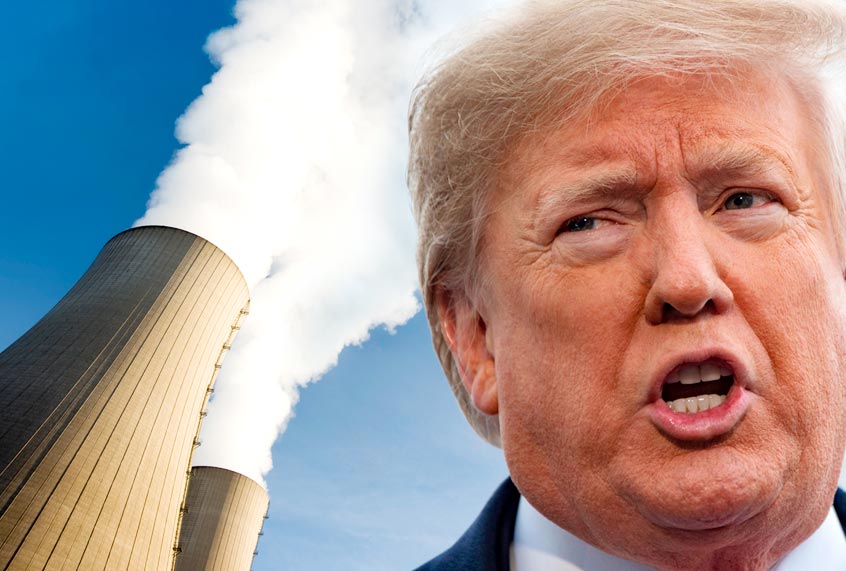As if removing the United States from the Paris Agreement and reversing climate change protections weren’t enough, a new analysis of Environmental Protection Agency data published by the Washington Post shows many polluters are saving money on civil penalties — meaning the administration is letting them off the hook for desecrating the environment. The report exemplifies once again the Trump Administration’s priorities regarding climate change, as polluters have experienced the lowest average level of fines since 1994.
Over the last two decades, according to the report, EPA civil penalties averaged more than $500 million a year (an average adjusted for inflation). The last fiscal year was nearly 85 percent below that, at $72 million. Barack Obama’s former EPA assistant administrator, Cynthia Giles, conducted the analysis which was reviewed by the Environmental Integrity Project and told the Post that lower civil penalties could threaten the EPA’s ability to avert any wrongdoings of polluters.
In essence, the strategy has always been to make it more expensive to violate the law than to adhere to it. Civil penalties include a wide variety of violations ranging from water contamination to air pollution.
“The public expects EPA to protect them from the worst polluters,” Giles told The Post. “The Trump EPA is not doing that. What worries me is how industry will respond to EPA’s abandonment of tough enforcement.”
EPA acting administrator Andrew Wheeler, a former fossil fuel industry lobbyist, addressed the Trump administration easing regulation penalties for polluters, positioning them as a burden and not a necessity for “environmental progress.”
“Through our deregulatory actions, the Trump administration has proven that burdensome federal regulations are not necessary to drive environmental progress,” Wheeler said at a Senate Environment and Public Works Committee at his confirmation hearing. “Certainty, and the innovation that thrives in a climate of certainty, are key to progress.”
The analysis also showed a drop in the money companies must pay to be in compliance with federal environmental laws, by $5.6 billion (adjusted for inflation), the lowest amount since 2003.
According to the Post, EPA officials declined to disclose exact figures for past fiscal year’s civil or criminal penalties due to the government shutdown. Susan Bodine, the Assistant Administrator for EPA’s Office of Enforcement and Compliance Assurance, called the analysis misleading because it included large settlements.
“It is not statistically valid to imply a trend by averaging an outlier value with other values,” she said. “Let there be no mistake — EPA enforcement will continue to correct noncompliance using all the tools at its disposal, including imposing civil penalties to maintain a level playing field and deter future misconduct.”
However, a separate report from Public Employees for Environmental Responsibility (PEER) showed a similar trend as the other report: that the number of criminal cases the EPA referred to the Justice Department is also at the lowest level in 30 years. In the 2018 fiscal year, the EPA experienced a 60 percent decline in referrals for prosecution from 2011.
“The absence of criminal prosecution means corporate polluters can be comfortable that they will suffer no personal consequences, no matter how egregious the offense,” said PEER Executive Director Jeff Ruch. “Nothing could be more core to EPA’s mission than enforcing our nation’s pollution laws.”

